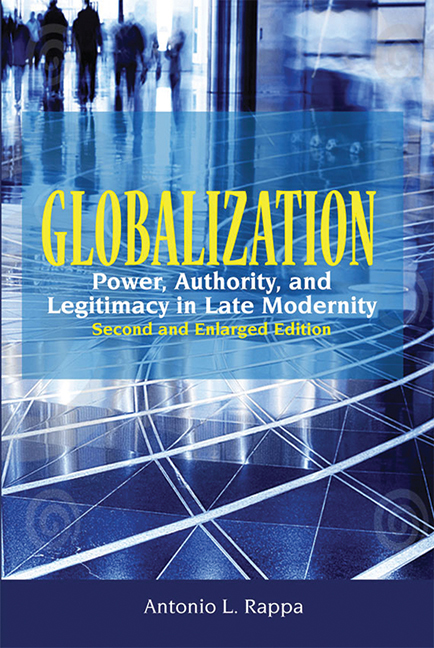Summary
This chapter examines the complex connections between globalization and war. There are many reasons for war today. It appears that there are wars on virtually every front. There are cultural wars and social wars at different levels in each economy. But perhaps the most consequential in a neoliberal capitalist world order are financial wars. When the Americans “won” the Cold War, everyone thought that capitalism was the economic answer to the less attractive and more inefficient alternative provided by the Soviets. No one could have imagined that the sub-prime crisis that actually began in the late 1990s — not ten years after the Cold War ended — would eventually balloon and burst all over Wall Street in 2008. People are making comparisons in the streets of New York City. They are comparing the consequences of 9/11's terrorist attack on the WTC and the financial terrorism of 2008 that has so far cost an estimated US$16 trillion and counting.
While the discussion of globalization involves competitive world markets and local entrepreneurialism, all these seem like empty words in the face of the financial wars of the economic world. In 2007 experts warned of a new economic recession because contemporary financial (but expert) speculation — based on sophisticated predictive tools — indicated that the global economy had run into a ten-year economic boom-and-bust cycle. There were others that argued that the global economy was experiencing increasing levels of intense economic competition with the amount of time between peaks and troughs being reduced through the compression of time into space by new technologies. Hence the operational hypothesis here is that new technologies compress time into space. The collapse of time into space means that an increasing set of events can be carried out in a shorter frame of time, but there are problems with such a compression. One of the most significant consequences of such compression is that the entities that occupy each discrete event are not prepared for extraneous adversity. Therefore, the rapid compression of financial time into political space often creates internal pressures which expose systemic weaknesses. The weaknesses become magnified when structures built for specific events are stressed beyond their limits. The sub-prime crisis is a case in point. And all this was fuelled by greed. Greed on the part of the banks and institutions and other underwriters as well as individuals.
- Type
- Chapter
- Information
- GlobalizationPower, Authority, and Legitimacy in Late Modernity (Second and Enlarged Edition), pp. 261 - 285Publisher: ISEAS–Yusof Ishak InstitutePrint publication year: 2011

